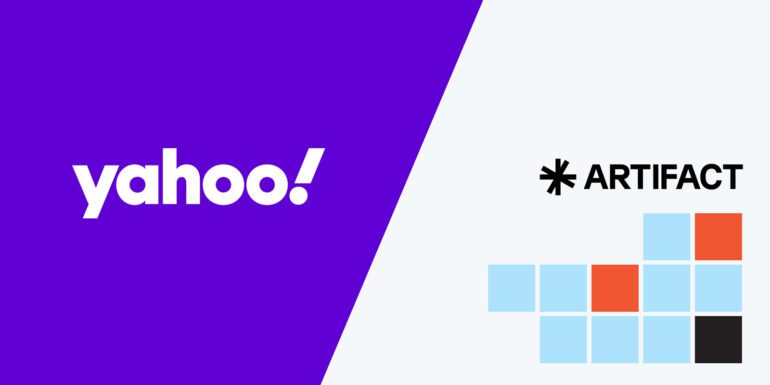- Yahoo acquires Artifact, an AI news app developed by Instagram co-founders.
- Acquisition emphasizes Yahoo’s aim to integrate tech-forward solutions into its platform.
- Instagram co-founders will serve as advisors, focusing on Yahoo’s transition post-acquisition.
- Artifact’s technology is prioritized over its personnel, signaling Yahoo’s commitment to innovation.
- The integration process will unfold gradually, enhancing user experience across Yahoo’s platforms.
- The acquisition represents a pivotal moment in the evolution of personalized content delivery.
Main AI News:
Yahoo’s recent acquisition of Artifact, the AI news app developed by Instagram co-founders Mike Krieger and Kevin Systrom, marks a strategic move for both parties. While Instagram’s duo created a powerful news recommendation tool, they struggled to scale it effectively. On the other hand, Yahoo boasts a massive reader base but seeks to infuse its platform with cutting-edge technology to distinguish itself among the plethora of news aggregators saturating the internet. Thus, the amalgamation of these two entities seems mutually beneficial, signaling a new chapter in digital news dissemination.
The specifics of the acquisition cost remain undisclosed, yet it’s evident that Yahoo prioritizes Artifact’s technology over its personnel. Krieger and Systrom will transition into advisory roles within Yahoo, relinquishing direct involvement in the company’s operations. Meanwhile, Artifact’s remaining workforce will either pursue alternative employment opportunities or opt for a hiatus.
This acquisition comes on the heels of Artifact’s closure, a decision prompted by the founders’ realization of limited market potential. Despite garnering a devoted user base, Systrom and Krieger acknowledged the need to redirect their focus towards ventures with broader reach and impact. Their vision for Artifact was rooted in harnessing AI’s transformative potential, yet they discerned more promising avenues outside the realm of news aggregation.
Interestingly, Systrom and Krieger’s post-shutdown stance shifted as inquiries from prospective buyers flooded in. This unexpected interest prompted contemplation, ultimately leading to discussions with various organizations, including Yahoo. For Yahoo, the allure lay in Artifact’s sophisticated content categorization and recommendation algorithms, which promise to enhance user engagement and satisfaction.
While Yahoo offers Artifact unparalleled exposure to its vast audience of over 185 million monthly visitors, Artifact’s technological prowess enriches Yahoo’s existing infrastructure. The integration process will unfold gradually, with Artifact’s innovations permeating Yahoo’s platforms over time. This synergy aims to accelerate the evolution of personalized content delivery, realizing the vision of a dynamic news ecosystem tailored to individual preferences.
Looking ahead, both parties emphasize the importance of a seamless transition while envisioning a future where technology and content converge seamlessly. For Systrom, the focus remains on facilitating a smooth handover to Yahoo, all while contemplating future endeavors. While the journey ahead is uncertain, Systrom’s unwavering belief in the transformative potential of AI fuels his quest for the next groundbreaking innovation.
Conclusion:
Yahoo’s acquisition of Artifact underscores a strategic pivot towards tech-driven news dissemination, reflecting a broader trend of industry incumbents embracing AI-powered solutions. By leveraging Artifact’s advanced algorithms, Yahoo aims to enhance user engagement and solidify its position in the competitive digital news landscape. This move signifies a paradigm shift, highlighting the increasing convergence of technology and content in shaping the future of media consumption.

